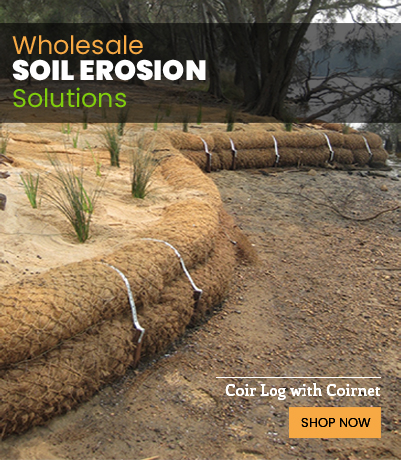Coir is a material made from the fibrous husks from the inner shell of a coconut. It is an eco-friendly, renewable substance that is gaining popularity in many mainstream uses. Coir can come in several different forms, including a peat-like material that is beneficial for gardens. There are also many uses of coir for agriculture, such as using it as fertilizer, mulch, and a way to help conserve water.
The Coir Products
Coir comes in several different forms, including coco-peat, coir dust, and horticulture coir. Coir in these forms is often used in gardening and agriculture. After the pith gets extracted from the husk of the coconut, it gets washed, treated with heat, and sieved to remove large particles. It is then often compressed into blocks or bricks to make it easy to move and store.
Once you have the blocks, you need to soak them in water to separate all the particles before you can use them. Coir can also be found in bags or bales for those who need it in larger quantities.
Coir in Gardening
Coir is an excellent addition to many gardens. It can be used as potting soil, either on its own or mixed with other potting mixes. Coir can also be a soil amendment. It makes the soil more porous, even when it is wet, and helps the soil to retain its moisture. Since coir absorbs over 30 percent more water than peat, it is much easier to keep wet.
Coco Coir as Fertilizer
Coco coir makes an excellent fertilizer, which can sometimes be created by burning the coconut husk. The ashes produced by burning the coir are a natural fertilizer. An even better way to use coir is just to take the natural coconut husk. As this decomposes into the soil, it creates a natural fertilizer and provides excellent benefits.
Coco Coir as Mulch
Mulch is another way to use coir for agriculture. You can create layers of coir and soil when digging trenches. Bury a layer of the coco coir and then cover it with soil, and repeat this for several layers. Using it this way helps conserve water and keep the soil moist for longer.
The Benefits of Coir for Agriculture
There are many benefits to using coco coir in agriculture. It has a neutral pH, unlike peat moss (which is very acidic). Most vegetables grow better in neutral conditions, and since coir is naturally neutral, there is no need for extra additives to even out the acidity.
Coir also improves drainage in agricultural beds. Since it breaks down slowly but retains moisture, it creates air pockets below the roots in the soil. This allows the water to drain away from the plant’s roots but still hold some of the moisture, so the soil doesn’t completely dry out. This works on many types of beds including those with heavy clay and in dry beds with more sand.
Coir has many uses for agriculture. Since it is a natural substance, it’s eco-friendly and not harmful to surrounding wildlife.

Leave a Reply
You must be logged in to post a comment.